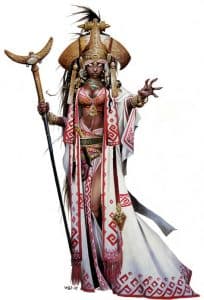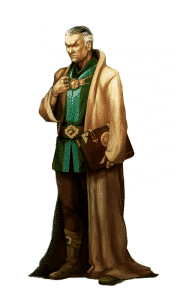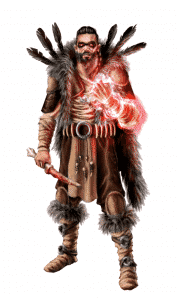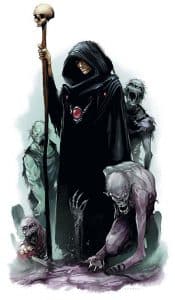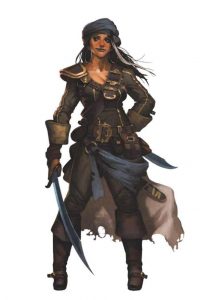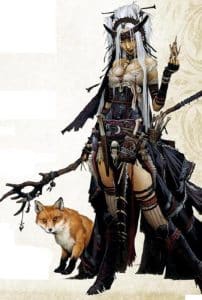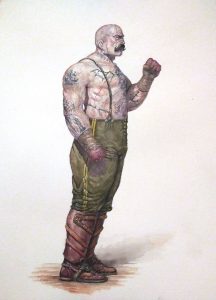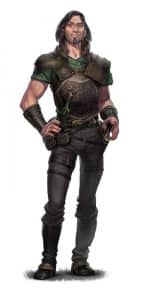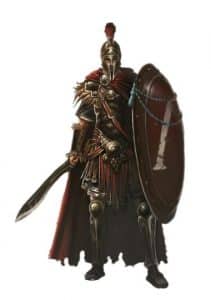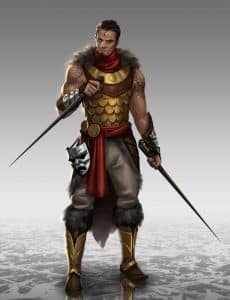However, Fifth Edition, like its predecessors, has a vibrant and active Homebrew community. While the vast majority of these player-created classes are frequently unbalanced or overly ambitious, there are a few jewels among them. A successful Homebrew class must address a system gap, letting players pursue an archetype that was previously inaccessible or frustratingly restrictive.
Top 10 Homebrew Classes in Dungeons and Dragons
1. Oracle
Whereas priests appear to be general wise men and diviners appear to be voyeurs, oracles serve a specific function. They try to predict the future and enlist the help of the divine to do so. Strengths possessed by Oracle:
Oracles are very adept at boosting friends while debuffing foes. Oracles may cast numerous concentration spells at the same time, making boosting and debuffing much easier. In addition to buffs and debuffs, Oracles have a number of utility spells.
2. Scholar
For folks who don’t want to play a wizard, cleric, or another type of caster but still want to play a smart character. Scholars are a nonmagical kind of assistance that may assist in both battle and non-combat situations. Their primary assets are their knowledge abilities. Strengths possessed by Scholar:
Scholars can play a variety of roles, ranging from faces to tacticians to healers. The bulk of their movements as a support class aid or help other characters. Scholars keep low magic campaigns in check and keep them from becoming overly focused on the arcane.
3. Shaman
Druids might come off as overly martial, clerics can come across as overly civilized, and wizards can come across as out-of-touch geeks. Shamans are an excellent way to maintain part of the tribal flavor of the druid, the spiritual aspect of the cleric, and the intellectual feel of the wizard for those who desire something in between. Shamans interact closely with nature spirits to perform divine magic making it 4th among the best d&d homebrew classes. Strengths possessed by Shaman:
Shamans, like clerics, know all of their spells for each level; all they have to do is choose which ones to employ for the day. They, like sorcerers, do not have to decide how many of each spell they will employ; instead, they must pick from a list of spells for the day.
4. Necromancer
While necromancers are included in the standard book, many undead rulers may find the base wizard subclass inadequate. As a result, the homebrew necromancer tries to make a considerably more delicious necromancer. Strengths possessed by Necromancer:
Necromancers are an alternative to wizards, and once they’re up and running, they serve a similar purpose. Creed of the Dead, for example, makes extensive use of undead minions to set traps, shield squishy casters, and so on. Overall, the class aims to make the caster less susceptible.
5. Pirate
Pirates, who are typically halfway between warrior and rogue in character, are usually needed in more watery operations. They, like the ranger, have a lot of ancillary benefits. The taste of a pirate with sea legs, on the other hand, cannot be denied. Strengths possessed by Pirate:
Pirates excel in sparring with solitary opponents. Pirates also excel at keeping up with their opponents by increasing their ship’s speed and utilizing extra actions to counter enemy disengages actions.
6. Witch
Witches embrace the ancient ghostly perceptions of spellcasters, similar to shamans but more in the vein of warlocks. However, unlike warlocks, they employ spell slots similarly to wizards and rely more heavily on their class skills. Strengths possessed by Witch:
Witches, like Warlocks, prefer to employ easily repeated class skills over spell slots. Witches rely heavily on their familiars, which benefit from additional boosts. Taking a good item and making it even better.
7. Pugilist
People usually choose monks when they want to portray a character that strikes people in the face on a daily basis. However, as eastern monks in a world with dwarves and elves might seem weird, this can lead to an unusual flavor route. As a result, the Pugilist falls into a comparable category but has less influence on flavor. Strengths possessed by Pugilist:
Pugilists excel in launching a large number of attacks in a single round, making them a reliable source of damage. With their Iron Chin ability, Pugilists may also act as a tank in a pinch. Pugilists can also be used as grapplers to assist teammates in inflicting harm on an opponent.
8. Con Artist
Whereas d&d homebrew classes are focused on fighting, the Con Artist is more sociable. They gain experience in the same way as rogues do, but instead of delivering a lot of damage, Con Artists specialize in persuasion, trickery, and general espionage. Strengths possessed by Con Artist:
Con artists are effective replacements for enchanters, sorcerers, and other low-magic characters. Con Artists bring a unique social component to a game with wargaming roots by focusing only on becoming a party face.
9. Legionnaire Fighter
Given the importance of fighters in a group, it’s odd that there aren’t more tanky subclasses. The Legionnaire is a subclass in d&d homebrew classes that specializes in using a shield and defending their comrades. Strengths possessed by Legionnaire Fighter:
Legionnaires, as their name suggests, are extremely adept at taking blows and surviving. By channeling their second wind into a collective effect, legionnaires may also keep allies alive.
10. Gladiator
The last one in our list of d&d homebrew classes is Gladiator. Gladiators may sound like another fighter variation, but this homebrew class highlights the historical gladiators’ more bard-like features. It introduces an intriguing strength and Charisma-based character class that isn’t commonly seen in D&D. Because Gladiators used to go bare-chested to display how bloodied they were, a bit of Constitution-based AC bonus in place of the heavy armor proficiency would move the class up the list. Strengths possessed by Gladiator:
Fighting styles that are extremely specific. They concentrate on combat methods that employ nets and whips, which are less common. Gladiators are a unique sort of sports celebrity that isn’t typically seen among fighters.
